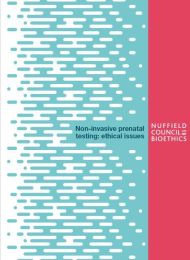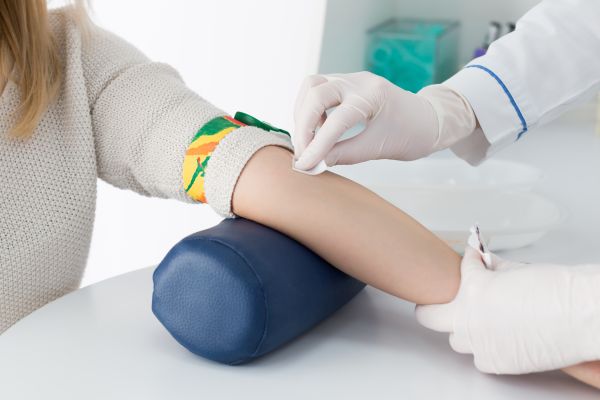Non-invasive prenatal testing: ethical issues
Report
Published 01/03/2017

- To consider the ethical, legal and regulatory implications of recent and potential future scientific developments in non-invasive prenatal testing (NIPT), having regard to its use in both NHS and commercial services, including for whole genome/exome sequencing.
- To engage a range of people and organisations in the consideration of these questions.
- To report and disseminate findings and recommendations amongst key decision-makers and other stakeholders.
The Working Group will be considering questions including:
- i. Whether providers of NIPT should be subject to any limits in terms of the development of tests for specific genetic factors, conditions or traits, or whole genome sequencing;
ii. Whether the NHS criteria for appraising potential screening programmes is appropriate for use in the context of NIPT;
iii. The responsibilities of providers to ensure individuals and couples are able to make informed decisions in relation to NIPT;
iv. Whether current UK law and regulation relating to NIPT is appropriate;
v. Any wider implications for society of increased availability and use of NIPT, for example for people with disabilities;
vi. Any other specific and relevant ethical issues raised for the UK by developments in NIPT in non-UK contexts.
The terms of reference were updated on 10 May 2016.
What do we mean by NIPT?
During this project, the working group will be considering the ethical issues raised by all kinds of non-invasive prenatal genetic testing using cell free fetal DNA (cffDNA) from maternal blood. This includes:
- Testing cffDNA to estimate the chance that a fetus has aneuploidy (e.g. Down’s Syndrome, Patau Syndrome and Edwards Syndrome), which is commonly referred to as non-invasive prenatal testing or screening.
- Testing cffDNA to get a definite or near definite diagnosis of other specific genetic conditions (e.g. achondroplasia and Apert syndrome), when family history information or an ultrasound scan suggests the fetus is at risk. This is sometimes referred to as non-invasive prenatal diagnosis.
- Testing cffDNA to determine fetal sex.
- Testing cffDNA to perform whole genome/exome sequencing.
The working group will be using non-invasive prenatal testing (NIPT) as an umbrella term for all these kinds of tests.

Share